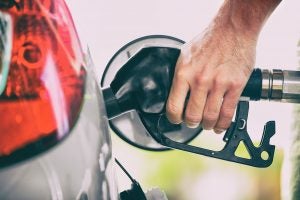The state of Minnesota is being sued over its adoption of California’s “zero-emission vehicle” mandate, and the Minnesota Soybean Growers Association is among those leading the charge against the mandate.
“Having Minnesota blindly follow California’s rules gives up our ability to make our own decisions and would sabotage our own growers and producers of liquid fuels in the heartland,” MSGA President Bob Worth said. “Minnesota consumers know better than California politicians what is best for their own lives.”
The association joins the Minnesota Service Station & Convenience Store Association and NACS, Clean Fuels Development Coalition, and ICM Inc. challenging the legality of Minnesota Pollution Control Agency rules requiring that new cars, light-duty trucks and medium-duty vehicles in the state meet emission limits set by California and match California’s requirements for the sale of a certain percentage of so-called “zero-emission vehicles,” as defined by California regulators.
The suit was filed in the U.S. District Court for the District of Minnesota.
The lawsuit contends that the federal Energy Policy and Conservation Act (EPCA), which creates a uniform national standard for vehicle fuel efficiency, prohibits states from adopting policies “related to” federal fuel-economy standards. The EPCA says that a “State or a political subdivision of a State” cannot “adopt or enforce a law or regulation related to fuel economy standards or average fuel economy standards.”
In the EPCA, Congress expressly forbade the National Highway Safety Administration from considering the fuel economy of vehicles that run on “alternative fuels” (such as electricity) in setting fuel-economy standards, according to the lawsuit. The suit also challenges Congress’ decision to grant California — and only California — special authority to adopt its own motor-vehicle emission standards different from those set by the U.S. government.

“Duplicating California’s mandate for one vehicle technology over others will not achieve anyone’s goals,” said Henry O. Armour, NACS president and CEO. “Some of the most significant reductions in carbon emissions from transportation have come from using more renewable fuels and more efficient internal combustion engines. Adopting California’s rules in Minnesota would stop further investments in efficient use of renewables and other liquid fuels and would result in more net carbon emissions than we would have without these misguided rules.”
This scheme, the lawsuit contends, violates the Constitution’s equal sovereignty doctrine because it grants California a greater degree of sovereignty and capacity for self-government than all other states.
Renewable biodiesel is big business in Minnesota. About $1.7 billion of Minnesota’s GDP comes from the biodiesel industry, and biodiesel supports nearly 5,400 jobs in the state and 65,000 jobs in the U.S.
Aside from economic benefits, the biodiesel industry helps protect the environment. Studies show that biodiesel reduces greenhouse gas emissions by more than 50 percent and displaces roughly 130 million gallons of petroleum diesel in Minnesota each year. Using a B20 blend in the summer and a B5 blend in the winter equates to removing the emissions from approximately 245,000 vehicles from state roads every year.


